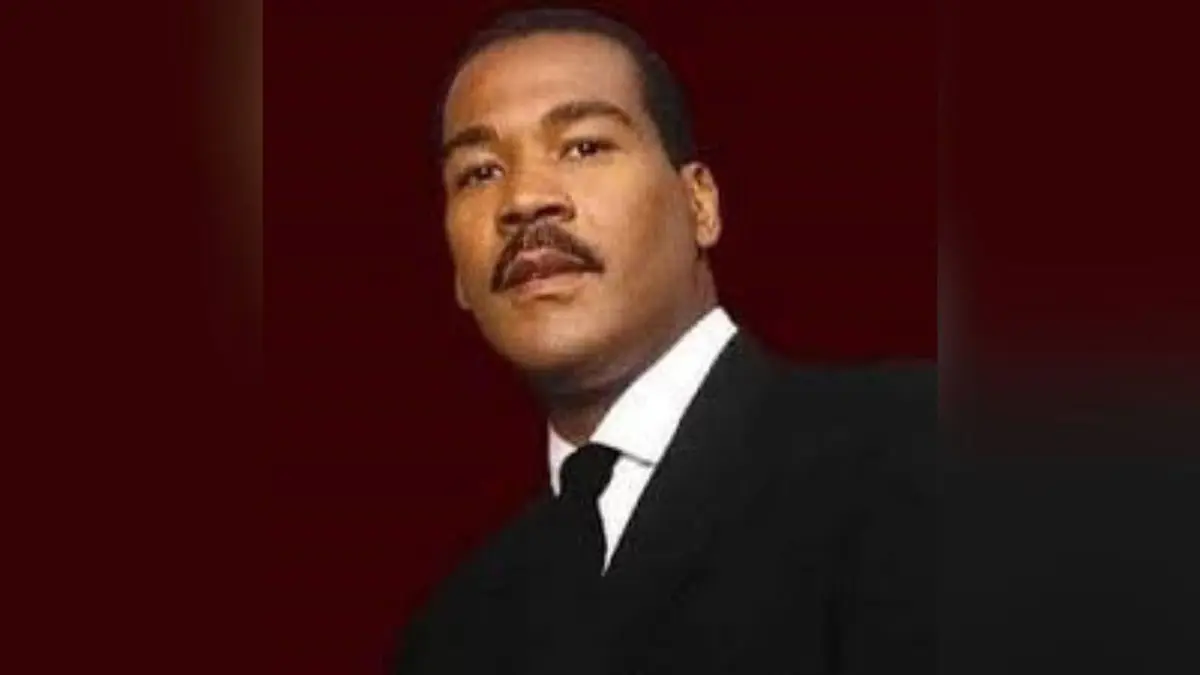
How does someone born into legacy build something financially substantial on their own terms?
That was the question many asked as Dexter King—son of civil rights legends Martin Luther King Jr. and Coretta Scott King—navigated life wearing multiple hats: activist, author, executor of heritage, and savvy investor.
He wasn’t the flashy type. No sold-out arenas, no viral businesses, no megahit albums. Still, Dexter carved out serious success, even while walking a high-wire between nonprofit duty and strategic capitalism.
This isn’t just another story about celebrity finance.
It’s about purpose-led wealth strategy.
It’s about using entrenched assets—like intellectual property—and turning them into recurring revenue.
And it’s also about how to read between the lines of public net worth estimates, especially when numbers swing from $10 million to $70 million.
This case study? It hits at the intersection of legacy, leverage, and leadership.
Let’s break down his numbers the way analysts break down earnings calls—sharp, straight, and backed by hard economics.
Introduction To Dexter King’s Financial Legacy
Dexter King wasn’t just the son of a historical figure—he was an active guardian of a message that shaped the nation.
Born in 1961, Dexter stood at a unique junction of history and modern business. While honoring his father’s civil rights mission, he stepped into roles that demanded smart decision-making, especially financially.
Leading The Martin Luther King Jr. Center for Nonviolent Social Change, he took full charge of managing rights attached to his father’s speeches, writings, and image. That job? It wasn’t ceremonial—it was strategic.
From negotiating licensing agreements with Hollywood productions to managing long-term intellectual property contracts, Dexter played in a domain few talk about: celebrity estate monetization.
Financial experts use his story to unpack how legacy-based income works. He created stability not only through IP royalties but also through high-return investments like his Malibu estate.
Understanding how he stacked wins in both nonprofit and for-profit lanes gives us insights into modern celebrity finance case studies. And whether you’re analyzing net worth trends or managing your own growing wealth, there are lessons here.
Celebrity net worth trends aren’t just gossip fodder. They’re blueprints—especially for mission-driven public figures trying to merge values with value.
Understanding Celebrity Net Worth Fluctuations
Celebrity net worth.
It gets thrown around like confetti.
But what actually goes into it?
It’s not just about the money you see on the outside. When analysts talk about “celebrity economic analysis,” they’re pulling in multiple variables. Some reliable, some rough guesses.
There are two main methodologies behind this:
- Asset-Based Approach: Add up all the assets—cash, real estate, stocks, IP rights—and subtract liabilities. Sounds simple. It’s not.
- Market-Based Approach: Compare earnings and investments to similar profiles in the market. This involves multipliers and data modeling, not crystal balls.
Now onto the spicier stuff: fluctuations.
Here’s what actually moves the needle when it comes to swings in net worth:
Royalties, licensing, book deals, real estate, public speaking fees, and even passive stock market returns. Dexter’s licensing business around Martin Luther King Jr.’s estate is a perfect example of intellectual property driving recurring income.
– Real estate market trends
– Public image shifts
– Legal costs or settlements
– Shifts in political climate influencing nonprofit affiliations
In Dexter King’s case, from the mid-2000s onward, he anchored his portfolio with a Malibu property acquired for $4.16 million in 2007. Smart play. West Coast real estate has remained a bedrock for net worth momentum.
What does the last decade of data say?
| Year | Estimated Net Worth | Main Revenue Driver |
|---|---|---|
| 2010 | $5M | Book royalties & speaking |
| 2016 | $12M | Licensing agreements & IP |
| 2024 | $10M – $70M | Estate management & real estate |
That gap—from $10 million to $70 million—is big. And it tells us something important.
Financial modeling for celebrities isn’t always public, nor precise. Especially when the assets include intangible rights like MLK’s speeches, which generate royalties but are hard to pin a resale value on.
Different outlets give different figures:
– NetWorths.io places Dexter King’s net worth between $50M-70M.
– Meanwhile, Richest Singer and CitiMuzik both estimate it at $10M.
Why such a swing?
Because estimating celebrity net worth for someone who blends nonprofit duties with profitable holdings—like Dexter—requires more than one spreadsheet.
Most financial tools can’t measure mission-driven capital alongside hard returns. That’s a gap in analysis that only context can fill.
Bottom line?
Celebrity wealth tracking is part numbers, part nuance.
Dexter King’s financial path shows exactly how layered celebrity net worth analysis can be when values and value collide.
Dexter King’s Financial Highlights
How do you turn a movement into multi-generational income without selling out the mission?
That was the financial tightrope Dexter King walked for decades.
He was chairman of The Martin Luther King Jr. Center—sure. But his bigger role? Guardian of the King family’s intellectual property.
Every quote you’ve heard, every image you’ve seen of MLK Jr. in a Nike commercial, documentary, or museum? Someone had to approve it.
And often, someone had to earn from it.
Dexter led that charge.
Intellectual property wasn’t just legacy preservation—it was a commercial engine. Revenues poured in through:
– Licensing film rights
– Speech and likeness approvals
– Print publications and reprints
But it wasn’t just about revenue streams.
He reinvested heavily in philanthropy—mentorship programs, youth empowerment initiatives, and direct community development. For every dollar earned, there was serious thought on how much was redistributed to future change-makers.
Now, about that real estate.
In 2007, Dexter purchased a 6,800-square-foot mansion in Malibu for $4.16 million. That move wasn’t just lifestyle—it was balance sheet repositioning. Real estate in that area has appreciated fast, protecting capital while offering long-term gain.
Now onto the really debated part: Dexter King’s net worth.
Some outlets peg it at $10 million. Others push it north of $70 million.
Why so inconsistent?
Because:
– Licensing deals are private
– Intellectual property fluctuates in value
– Donations to nonprofits impact taxation and liquidity
And because even the best celebrity income analysis software can’t fully account for private trusts, debt, or philanthropic outflows.
Still, what we know is this:
Dexter King wasn’t just managing a civil rights legacy. He was navigating a complex web of nonprofit obligations and for-profit opportunities like any high-profile figure.
He did it with precision, and his financial model—though hard to fully define—stands as a case study in making wealth work without losing your message.
Celebrity Finance Case Study: Dexter King
How do you honor a historic legacy and still secure your own financial future? That’s the tightrope Dexter King walked throughout his life. As the son of Martin Luther King Jr., his mission was bigger than profit—but he didn’t ignore the bottom line either.
Dexter King combined idealism and smart strategy, ensuring that his father’s message lived on while quietly growing his own wealth. As chairman of The Martin Luther King Jr. Center for Nonviolent Social Change, he managed not just the message but the money behind the message. He licensed Dr. King’s speeches, writings, and image—turning ideals into intellectual property with long-tail value.
This wasn’t just feel-good philanthropy. Licensing deals around significant cultural moments like Dr. King’s “I Have a Dream” speech carried serious monetary value. Films, documentaries, and educational programs lined up for rights, and Dexter was the gatekeeper. He ensured those revenues were funneled back into the cause—while also sustaining the King family’s name financially.
Still, not everything was driven by nonprofit motives. Dexter also invested in real estate. He purchased a 6,800-square-foot Malibu mansion for $4.16 million back in 2007—a strong pivot into appreciating assets. It was more than status—it was part of a broader diversification play.
Is there a lesson here? Absolutely. Dexter capitalized on:
- Intellectual property: He treated Dr. King’s writings and speeches as valuable assets, licensing them with care and strategy.
- Nonprofit authority: He led the King Center while keeping control over financial avenues that enabled its long-term survival.
- Private investments: From real estate to potential speaking engagements and book deals, he created a safety net beyond the nonprofit space.
Balance doesn’t come easy in the public eye. But Dexter King knew the value of brand, legacy, and real-world dollars—and he never lost sight of that mix.
Key Trends in Celebrity Earnings and Financial Modeling
Ever wonder how public figures keep the money flowing once the spotlight dims? Celebrity earnings have changed. The playbook now includes turning fans into followers into revenue streams—across every platform, deal, and downloadable.
For many, royalties are the golden goose. When stars license their names, songs, or ideas, it means money in their sleep. Endorsements add even more, with brands paying handsomely for a single Instagram or branding deal. Speaking fees stack up too—especially if the celebrity stands for something bigger than themselves, like Dexter King did.
There’s also a shift happening—from active to passive income. Celebs aren’t chasing every gig anymore. They’re building systems that do the earning while they manage the vision. Real estate portfolios, book royalties, and equity stakes fit this model perfectly.
Now enter the tools. Managing millions takes more than a spreadsheet. Many now use:
- Budgeting apps: Sophisticated personal finance trackers that tie into every account, every investment.
- AI-powered modeling: Some celebrity money managers now use predictive tools that chart the trajectory of wealth years ahead, factoring in risk and volatility.
What’s fascinating is how Dexter King mirrors these trends. His licensing decisions did the same job as royalties do for musicians—generating predictable revenue. His public speaking and books tapped similar income flows. And that real estate play in Malibu? Spot on with the celebrity trend of wealth preservation through physical assets.
The takeaway? Celebrities aren’t just stars anymore. They’re brands. And the smart ones treat their legacy, like Dexter King did, as leveraged capital—worth protecting, worth growing.
Celebrity Money Management Best Practices
Managing millions is tricky—especially when your name carries meaning beyond fame. So how do public figures keep a grip on their money without selling out?
Dexter King showed one approach: build multiple reliable income streams. Between nonprofit leadership, cautious media licensing, and strategic property investment, he avoided dependency on any single source. That kept his financial future agile and recession-proof.
Key to long-term planning is thinking in decades, not years. Dexter likely didn’t just buy a multi-million dollar home for the ocean view. It’s an appreciating asset—and one with tax advantages when planned right. Thinking ahead like this, not just for himself but for the King legacy, let him leave more than a name behind.
Of course, none of that happens solo. Many celebrities—Dexter likely included—count on seasoned financial advisors to help with:
- Structured diversification: Mixing active and passive income, charity and for-profit, publicity and privacy.
- Tech support: Using AI-driven dashboards to track burn rates, plan investments, and stress-test future cash flows.
Bottom line? Financial health for public figures is part instinct, part infrastructure. Dexter King had both. It takes a plan—and it takes people trusted to help build and keep that plan on course.
Economic Analysis of Dexter King’s Wealth
Let’s talk about the real story behind the numbers. You’ve probably seen the wide range in estimates about Dexter King’s net worth. One source will say $10 million. Another will toss out $70 million like it’s pocket change. So what’s actually going on here?
First, look at what he owned. Dexter wasn’t just a passive figure riding off his dad’s legacy. He actively managed and monetized valuable intellectual property—his father’s image, speeches, and likeness. This type of control generates licensing income through films, documentaries, and even branded merchandise. That’s a serious income stream not everyone sees on the surface.
Then there’s real estate. In 2007, he dropped $4.16 million on a 6,800-square-foot mansion in Malibu. That kind of property doesn’t just sit there collecting dust—it appreciates, especially in one of California’s most elite zip codes. Assuming average appreciation rates, that single asset could make up a solid chunk of his wealth.
But what about liabilities? No net worth conversation is complete without it. We don’t have every mortgage detail or loan paper. But a high-value home usually comes with a sizeable mortgage. Add to that any potential legal fees from disputes (there were tensions between family members over the King estate), philanthropic expenses, or business risks that didn’t pan out—these all erode net worth.
Markets played a role too. Licensing income from historical intellectual property like MLK’s image depends on cultural relevance and demand. During civil rights anniversaries or political shifts, value spikes. Real estate’s another beast—Malibu’s market surged in the 2010s and then again post-pandemic. These market dynamics significantly sway the top-line value of what someone “owns.”
So, Dexter’s wealth was never just a number in a bank account. It reflected a balance of high-value assets, volatile markets, and the invisible costs of managing a legacy. That’s why two estimators can look at the same person and come to wildly different conclusions—timing, assumptions, access to data, and financial blind spots.
Technology and Productivity Tools in Celebrity Finance
Managing celebrity money isn’t just about intuition anymore. It’s tech-driven, surgical, and automated. Dexter King had complex holdings. So any modern finance setup around him likely included tools built for high-net-worth chaos.
Think wealth tracking platforms—these aren’t your average budgeting apps. We’re talking private dashboards that attach to real estate holdings, licensing payments, royalty income, and even crypto or alternative investments. Tools like Addepar or Personal Capital’s wealth management suite offer real-time insight into net worth across fragmented income streams.
Then there’s modeling. For a guy like Dexter, financial teams can’t just react—they need to predict. That’s where simulation software comes in. These systems map out different business scenarios: licensing revenue under recession conditions, property value dips, or donation expenditure spikes. Forecasts help figure out cash flow tolerance before problems even pop up.
Analytics, let’s not forget that. The public image of MLK isn’t static—it moves with social momentum. That means data tools track media references, engagement stats, and brand value to estimate what Dexter’s IP portfolio could earn next quarter. They’re not guessing; they have patterns.
The lesson here: modern celebrity wealth management runs on numbers, not vibes. And if you’re sitting on a once-in-a-generation portfolio like Dexter King did, tech isn’t optional—it’s survival.
Broader Implications: Lessons from Dexter King’s Financial Journey
Here’s the deeper question in all this: How do you stay mission-driven like Dexter King—protecting his father’s civil rights legacy—while also building real, lasting wealth? Because living off a legacy and living up to it financially are two different games.
Dexter didn’t chase headlines. He put his energy into mission-aligned ventures that still brought money in the door. Licensing MLK content wasn’t about selling out—it was about controlling the narrative and monetizing it responsibly. The takeaway? It’s possible to generate income from meaningful work without compromising values.
Let’s get pragmatic. If you’re managing a high-profile profile like King’s, or even just trying to translate passion into paychecks, here’s what matters:
- Own your IP: Copyright, license, trademark—whatever it is, control your creations before someone else does.
- Diversify assets: One asset (like a house or book deal) won’t feed you forever. Dexter’s portfolio included real estate, media deals, and branding.
- Build a financial brain trust: You need legal counsel and financial planners who get both taxes and ethics.
Dexter’s case also reshapes celebrity finance. Most folks think being connected to fame equals easy cash. Wrong. Managing old wealth—especially when it’s tied to a public mission—is harder than starting from scratch. Reputation risk, legacy conflicts, and public scrutiny make every dollar harder to earn and easier to lose.
His financial arc also proves one more thing: consistency beats flash. He didn’t hop on trends. He played a quiet power game, focused on long-term control over short-term flex. And if you look closely, that’s what ultimately defined the real value of Dexter King’s net worth.





